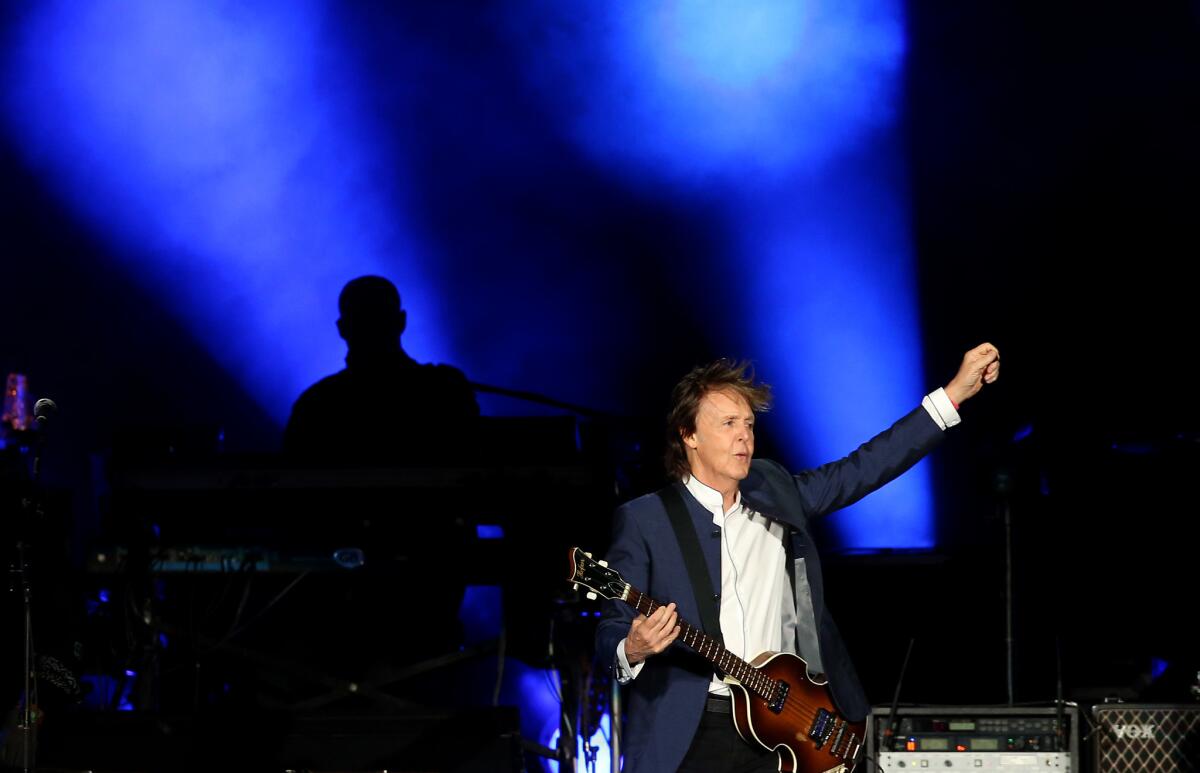Paul McCartney sues Sony/ATV over Beatles song rights

- Share via
The long saga over the rights to the Beatles catalog entered a new phase on Wednesday when Paul McCartney sued music publisher Sony/ATV over the rights to 267 songs that he penned for the band with co-writer John Lennon.
The suit, filed in the Southern District of New York in Manhattan, is the latest turn for the legendary, and lucrative, bank of songs, which includes all of the Beatles’ hits -- “Yesterday,” “I Want to Hold Your Hand,” “Hey Jude” and dozens more.
McCartney’s goal is to reclaim all of his published work with the band, most of it originally published by the company Northern Songs, and has been maneuvering to do so for years.
For decades, the catalog was a point of contention between McCartney and his onetime collaborator Michael Jackson, who owned half of the rights in a joint venture with Sony/ATV until his death in 2009. Last year, Jackson’s estate sold its share to Sony/ATV for a reported $750 million.
At the center of McCartney’s suit is the legal term “copyright termination.” Signed into law as part of the Copyright Act of 1976, it affords songwriters whose work has been sold or otherwise transferred to third parties, according to McCartney’s suit, “the non-waivable right to terminate those transfers and reclaim their copyright interests.”
The 1976 act set that period at 56 years, which means that Lennon and McCartney’s 1962-issued songs, including “Love Me Do” and “Please Please Me,” would come up for termination in 2018. If he’s successful, the rest of the Beatles music would continue to become available as each song hits the 56-year mark.
In a Wednesday statement to The Times, a spokesperson for McCartney said: “Paul McCartney has today filed a lawsuit in federal court in New York against Sony/ATV to confirm his ownership in his US reversionary copyrights, which are granted to him by US copyright law, in the songs he wrote with John Lennon and recorded with The Beatles. The lawsuit was filed in the U.S. District Court for the Southern District of New York and bears the case no. 17cv363.”
For tips, records, snapshots and stories on Los Angeles music culture, follow Randall Roberts on Twitter and Instagram: @liledit. Email: [email protected].
ALSO
Fleetwood Mac’s Christine McVie and Lindsey Buckingham talk about making their first duet album
‘Born to be his conduit’: Jennifer Warnes remembers her friend and collaborator Leonard Cohen
More to Read
The biggest entertainment stories
Get our big stories about Hollywood, film, television, music, arts, culture and more right in your inbox as soon as they publish.
You may occasionally receive promotional content from the Los Angeles Times.











